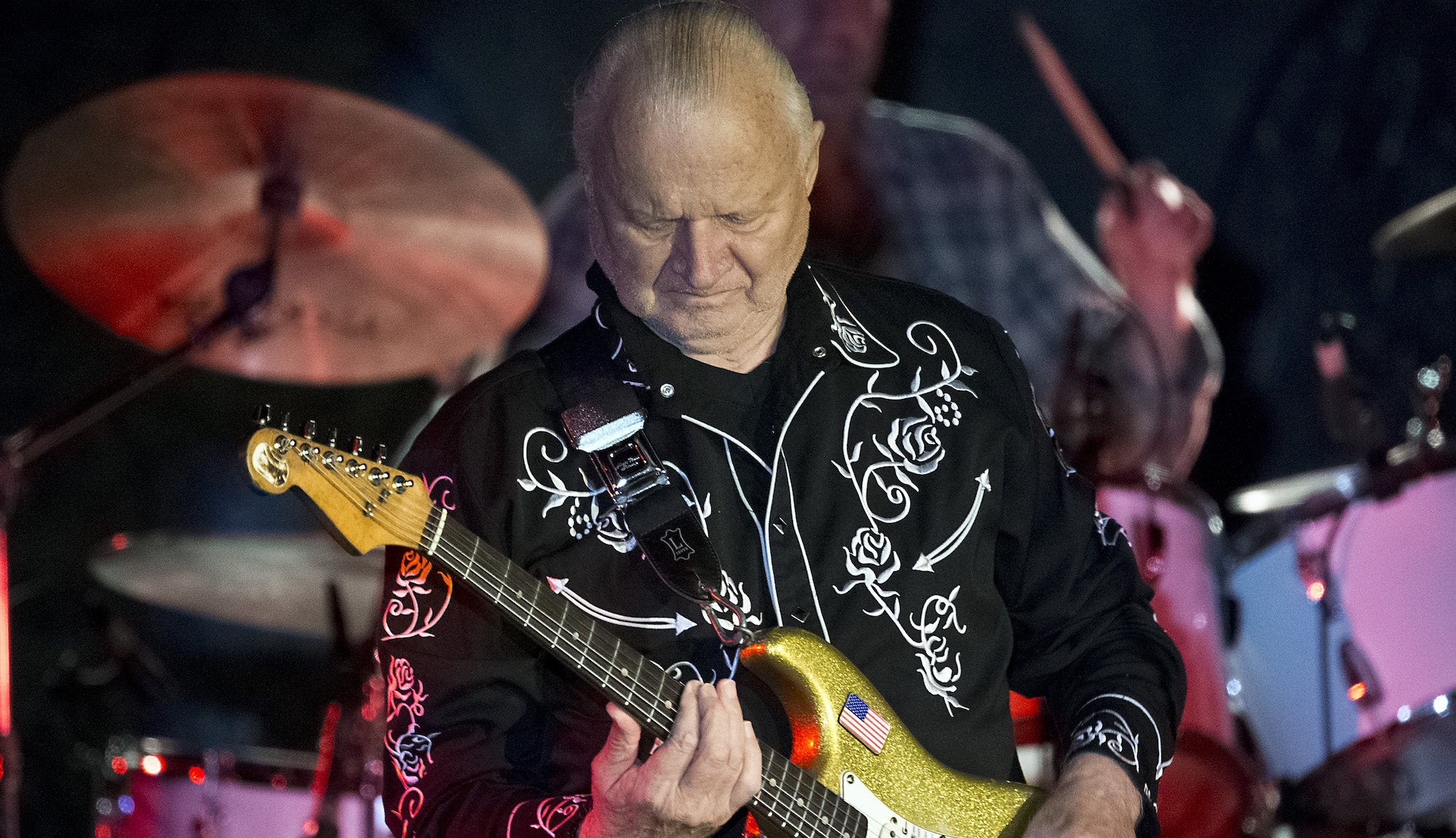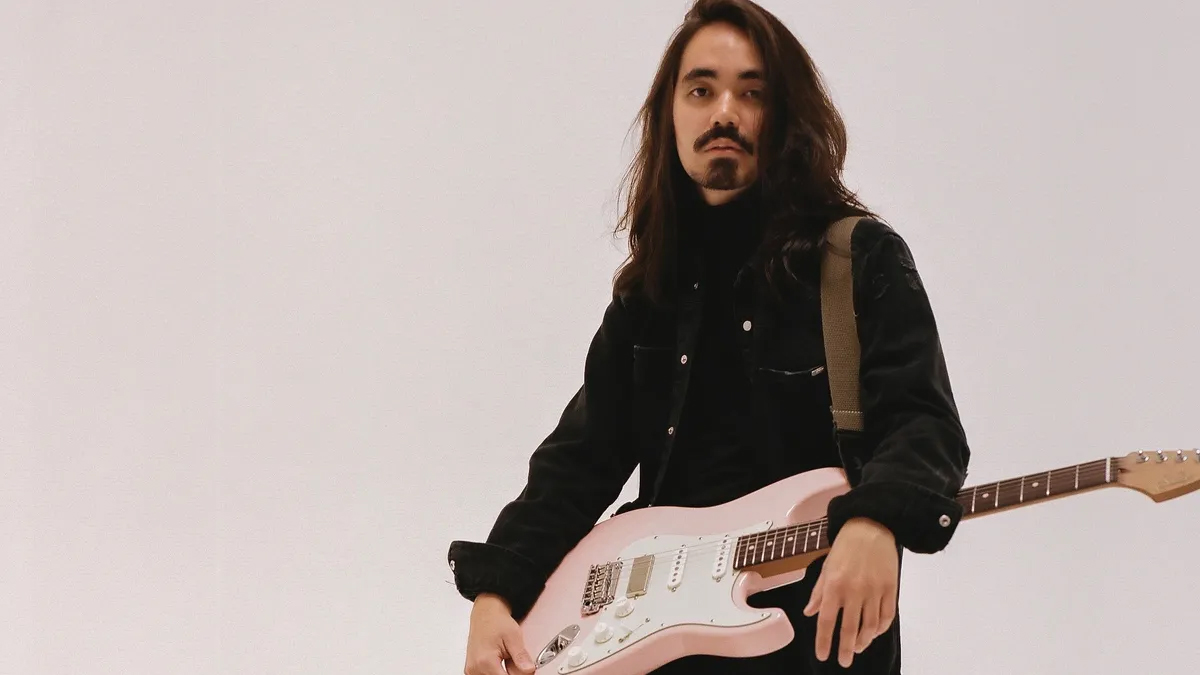Dick Dale, "King of the Surf Guitar," Dead at 81
The legendary, often overlooked guitarist virtually singlehandedly invented surf-rock, and influenced everyone from The Beach Boys to Eddie Van Halen.

Dick Dale, known as the "King of the Surf Guitar," has died at the age of 81. The legendary guitarist's death was confirmed by his live bassist, Sam Bolle.
Born Richard Monsour in Boston in 1937 to a Lebanese father and Polish mother, Dale grew up listening to both Middle Eastern and Eastern European folk music, both of which had a tremendous impact on his eventual playing style.
After moving with his family to Southern California in 1954, Dale developed a passion for both surfing and playing the guitar. His twin hobbies culminated in regular, well-attended performances at the Rendezvous Ballroom and the recording—in 1961—of "Let's Go Trippin,'" generally regarded to be the first-ever surf-rock instrumental.
With his blistering take on the traditional Middle Eastern song, "Miserlou," and his 1962 debut album, Surfers’ Choice, Dale laid the instrumental groundwork that groups like—most prominently—The Beach Boys would use to anchor their own surf-influenced pop, and turn the initially local fad into a national one.
Though Dale was dropped by Capitol in 1965 following the British Invasion, he remained a huge influence in the development of the electric guitar through his close relationship with Leo Fender, who engineered progressively louder and higher-powered amplifiers to satisfy Dale's needs.
Though he retired from music in the Seventies and engaged in a low-key comeback in the Eighties, Dale returned to the spotlight when, in 1994, Quentin Tarantino chose "Miserlou" as the theme music for his iconic film, Pulp Fiction.
In a 2015 interview with the Pittsburgh City Paper, Dale detailed his extensive health issues, saying “I can’t stop touring because I will die... Physically and literally, I will die.” He went on to say that the medical supplies he needed to remain alive costed over $3,000 a month, and kept him on the road consistently despite near-debilitating health problems.
All the latest guitar news, interviews, lessons, reviews, deals and more, direct to your inbox!
Dale previously survived two battles with rectal cancer, and a surfing-related puncture wound that became infected, and nearly ended up costing Dale his leg.
“When I go on stage, I’m in pain every night," Dale said in 2015. "But through the martial arts, I’ve learned to guide and deal with pain. I play harder now than I ever have, and honestly when I go on stage I push a button. I swear at the pain. ‘Get out of my damn body; I’ve got to do a job!’”
Jackson is an Associate Editor at GuitarWorld.com. He’s been writing and editing stories about new gear, technique and guitar-driven music both old and new since 2014, and has also written extensively on the same topics for Guitar Player. Elsewhere, his album reviews and essays have appeared in Louder and Unrecorded. Though open to music of all kinds, his greatest love has always been indie, and everything that falls under its massive umbrella. To that end, you can find him on Twitter crowing about whatever great new guitar band you need to drop everything to hear right now.

